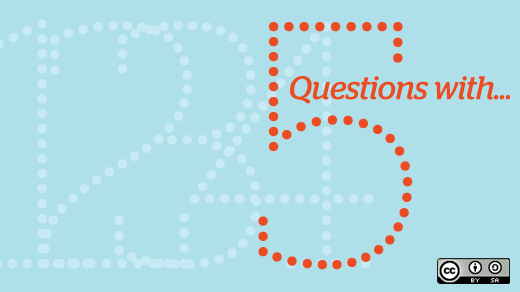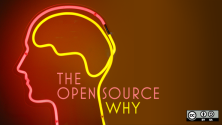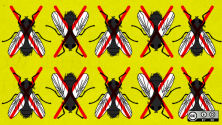Build a community by throwing a big party. Straight-up advice from Ben Brown, cofounder of the product design firm, XOXCO, Inc. And that's just one little nugget of information about online community-building that Ben is sharing. He's got 15 years of experience doing this, so get ready to take notes.
Brown is a software designer and a veteran of many online communities. He's been building websites since the mid-1990's and mixing it up with social media since before it was called social media. You could say he's a pioneer in community-building. Now he's using his experience to build a toolkit called Peoplepods--that might just redefine the future of community sites.
Do you want to know what the future of online community looks like? Me too. We asked Ben for his thoughts.
1) What one big opportunity, outside of technology, has the best chance of being solved the open source way (i.e., through collaboration, transparency, sharing, meritocracy, rapid prototyping, community, etc.)?
I think all of the large systemic entities in our society should take a good hard look at themselves and see where open source techniques can improve their processes and procedures. All of the talk about open government is great, but government isn't the only stale, stagnant system we're dealing with.

Image credits: Katie Spence
One of the exciting areas we've been lucky enough to work on is bringing the open source mentality to the corrections process in journalism. We helped design and build MediaBugs.org, which is an attempt to apply software bug tracking techniques to corrections - if you find an error in a news story, you can report the error publicly, and the error can be tracked and updated by anyone: the original journalist, the editors, people who were sources for the story, and anyone with expertise in the appropriate area.
Right now, for the most part, corrections are handled in a black box - you send an email to the reporter or to an anonymous email address, and then you hope something will happen. With MediaBugs, even if the "bug" never gets corrected, at least there will now be a record that it exists, and that someone somewhere has found fault with the story. I think there is enormous potential for opening up this process, and allowing readers to collaborate with journalists to make sure that news stories are accurate and up to date.
I think this type of mashup between open source and journalism fits nicely into the evolution of journalism from a print/static medium into a more dynamic, software-like product.
2) How has your knowledge of community building helped you program for community-related websites?
I think one of the best things that someone who wants to run an online community can do is to throw a really big party. Parties and community sites have a lot in common - they both have hosts, moderators, unruly guests, group activities, cliques...but whereas parties END, community sites are constantly going, FOREVER!
Your community site is a never-ending party where you are the host. And just like a party, you have to figure out a few key things about your community:
- Who do you want to attend, and how can you convince them to show up?
- How will you keep your guests entertained and engaged?
- What will you do if one of your guests gets drunk and starts smashing things?
Figure these things out before the doors open on your community so that everyone knows what they're getting into, and so you can have a good time.
3) Tell us why folks should be jazzed about PeoplePods.
PeoplePods is our open source toolkit for building community sites. I've tried to bundle all of the things I've learned from 15 years of building sites from scratch into an easy to use tool for developers interested in building their own sites. Here's why I'm jazzed:
- PeoplePods makes social stuff easy. It provides a simple interface for things like defining relationships between users, so you if your site needs to have 'friends' or 'followers' or even 'enemies,' you can do it in a few lines of code. It provides a simple interface for creating content and querying content. It provides a simple interface for managing sub-groups. It generates activity feeds for you. It sends alerts for you. It does all the complicated, boring and sometimes annoying stuff you need to do to allow thousands of people to work together on your site.
- Unlike a lot of similar tools (like BuddyPress and Drupal), PeoplePods has no predefined shape or format - it is not a blog, it is not a social network in a box, it is not a content management system. TRUE, it can be used for these things, but instead of trying to build the best generic product I could, I decided to built the best generic COMPONENTS and SYSTEMS I could, and let developers weave them together whatever way is appropriate for their project. I hate to hear about software where a developer's job is reduced to removing and hiding functionality through a series of CSS hacks and config options. With PeoplePods, you build UP from a simple base, not DOWN from an overly complex generic solution. This way, you are not limited by some other developer's dream of how things should work, and you are not forced to squeeze your idea into the confines of a blog or some other pre-existing design metaphor. Thus, MediaBugs looks and acts totally different from NeighborGoods, which looks and acts totally different from Helsinki Design Lab - but they're all using the same basic, solid, tested infrastructure.
- It's easy to extend PeoplePods with the plugin system. Not only can you create new pages and features on your site, but you can add actual OOP methods to all of the PeoplePods objects. So if you need some sort of specialized function to process your content or your users, you can just append it to the object and it'll be available to you throughout the site. You can create very complex, custom behavior this way that behaves like it was built in to the core, while still relying on the solid, tested core infrastructure of PeoplePods underneath.
- It's totally free! PeoplePods is available under the MIT Open Source license, so you can do literally anything you want with it.
- You can totally talk directly to me, and I will answer your questions! PeoplePods is pretty new, so I spend a part of my day, every single day, helping developers get started and figure out how they can use PeoplePods on their projects. I'm available on Twitter (@peoplepods) and on the PeoplePods.net site.
4) From your experience, what is the toughest part about building online community and your advice to be successful with it?
The two big pieces of building a successful community are:
- Building something that will delight your users.
- Getting the word out to your users that you've built something delightful.
Though it takes a lot of thinking and planning and designing to come up with a product that people will like, it is a hundred times harder to spread the word about it once it exists. A lot has changed on the Internet in the last decade. It used to be that the pure novelty of something being brought into existence guaranteed a decent user base. Now, you have to compete with a million new sites, apps, plugins and extensions being released EVERY SINGLE DAY.
My advice is, be patient, and start planning your marketing strategy yesterday.
5) What do you think online community will look like in 10 years?
I think the trend towards mobile, locally enabled sites will change the way online community and community-at-large works. For a long time, we've thought of the Internet as this VAST place where you can talk to ANYONE. I think people are finally starting to realize that its also a great way to talk to the people who live next door, or the people who frequent the same coffee shop. I think the capacity to reach the world causes people to overlook the real and exciting potential for online community to have a tangible, real life effect on your day to day existence.
I also feel that opportunities abound for smaller, quirkier communities. It's great that there are half a billion people on Facebook now, but I dream of a world where my interests and needs are served by mom-and-pop communities that create content and activities for me with an artistic, personalized flair.
In the future, we'll shop local for our software, the same way we shop local for our organic beets!
More about Ben
- Blog: I Love Ben Brown
- Company: XOXCO
- Twitter: @benbrown or @peoplepods
- Wikipedia: Ben Brown (blogger)






Comments are closed.